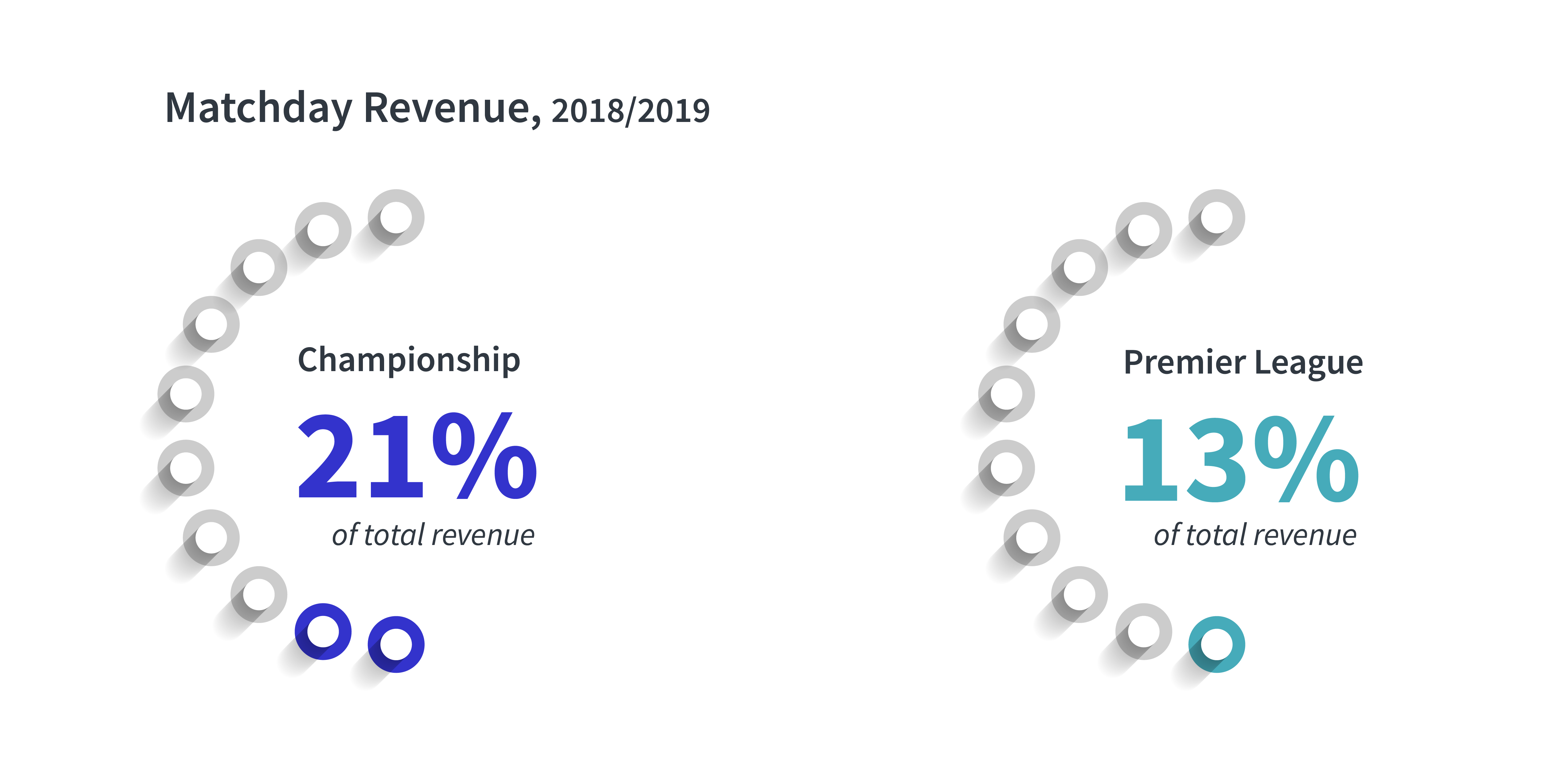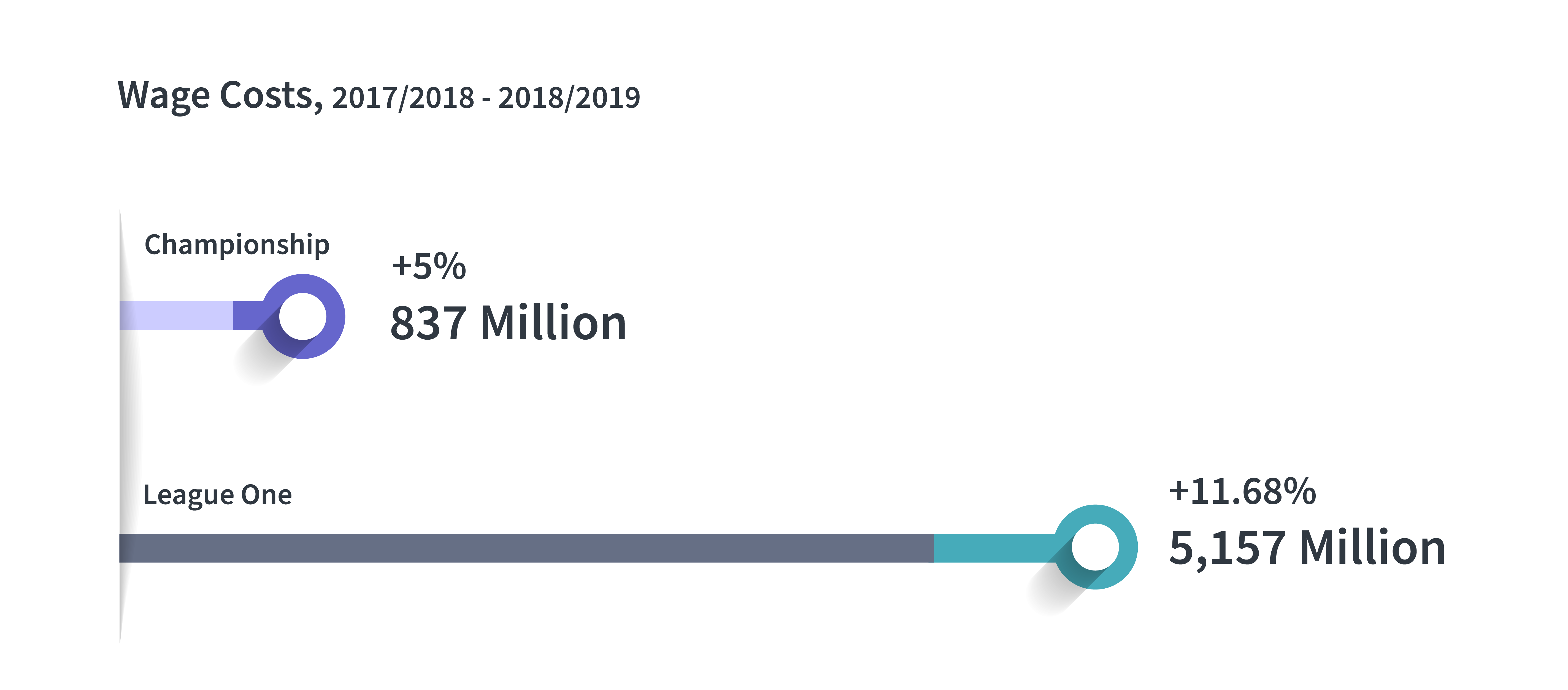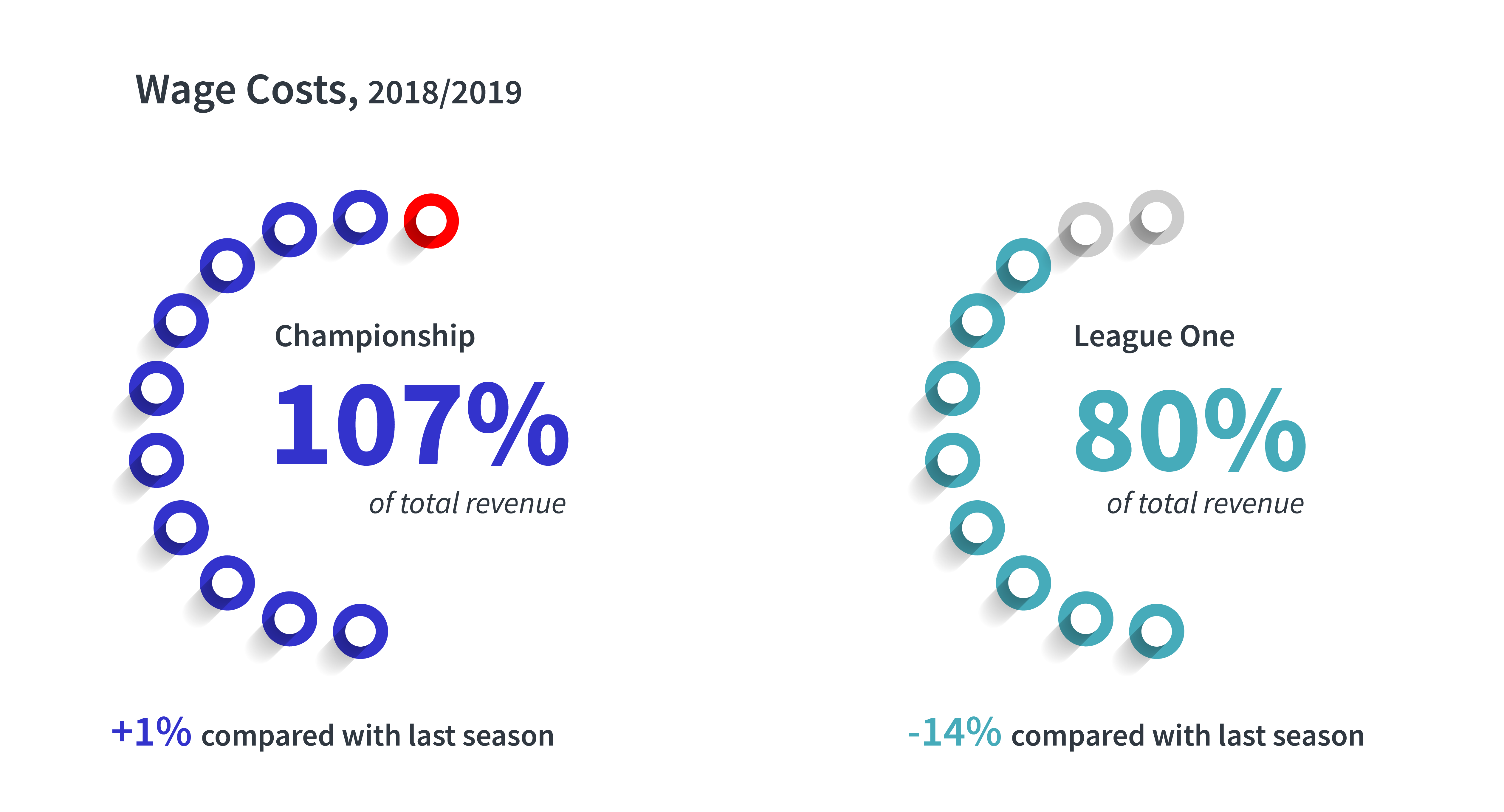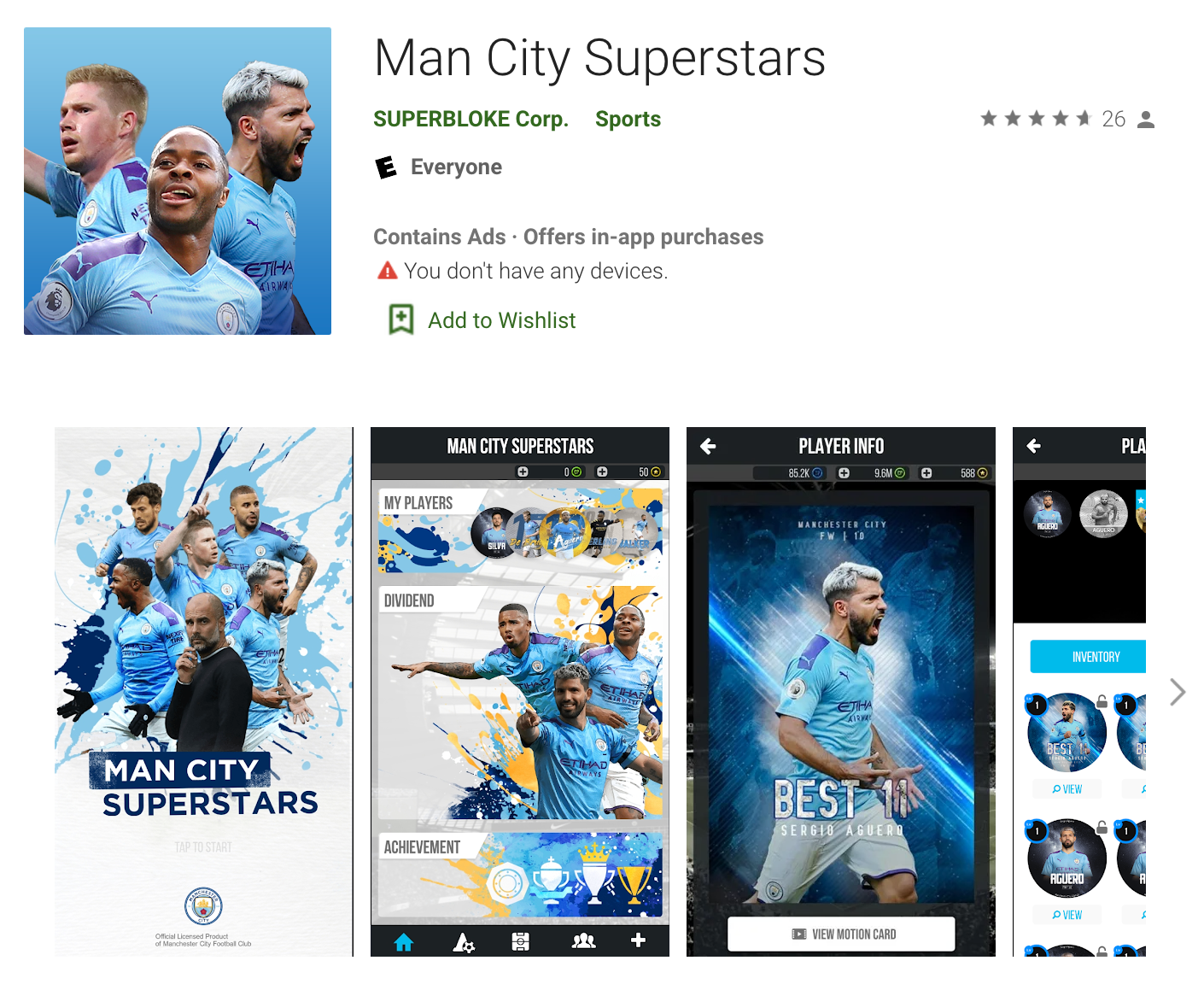John Payne, Aves Lair
Smaller EFL football clubs might not survive the pandemic
The COVID-19 pandemic and subsequent nationwide lockdown may deal a critical financial blow to the members of the English Football League (EFL), which represents the second, third, and fourth tiers of English and Welsh professional association football clubs. EFL sides, which were already facing dire financial straits prior to the crisis, are poorly positioned to withstand the loss in matchday revenue caused by the continued countrywide ban on fans in stadiums. Yet current proposals to rescue imperiled EFL sides fall short of delivering a sustainable fix. Could there be another way to save English Football League clubs amid the pandemic?
One possible solution is tokenization. Blockchain-based fan tokens could provide EFL clubs with an outlet to leverage club assets and make up for losses stemming from empty stadiums in the short term while helping them nurture fan loyalty in the long run. Indeed, past cases of supporters rising to the challenge as their clubs faced financial hardship point to the possibility that tokenization could mobilize fans and give the EFL a new lease on life.
The pandemic is likely to increase English Football League clubs’ financial pressure
Wigan Athletic, who compete in League One, the third tier in professional English football and the second tier in the EFL structure, became the first professional English side to go into administration during the pandemic this summer. Gerald Krasner, one of the administrators appointed by the club, cited the pandemic as a major reason for Wigan’s going bankrupt.
Bury FC was expelled from the EFL in August 2019. Upon investigating the matter, the EFL concluded that financial troubles were the main cause of the club’s collapse, and that “any additional EFL action ‘would not have made any difference to the eventual outcome.’”
The cases of Wigan Athletic and Bury FC underscore the particular danger faced by EFL clubs if pandemic measures, especially the ban on fans at games, continue unmitigated, and if current efforts to save English football clubs fail.
The EFL Chairman, Rick Parry, has suggested that EFL clubs, which “generate most of their revenues from gate receipts,” could lose as much as 200 million pounds during the supporter ban, in addition to the 50 million pounds in losses suffered by EFL sides since spectators were blocked from games at the end of last season. This comes after prime minister Boris Johnson aborted a “phased reopening of stadiums” set to begin in October as cases rose again in the UK.
Sky-high wage costs and reliance on matchday revenue pose a threat to club profitability
Financial vulnerability is endemic in the EFL

EFL matchday revenue in the 2018/2019 season
Matchday revenue is crucial to the financial viability of EFL clubs, representing 21% of total revenue in the EFL Championship, the second tier of English professional football, in the 2018/19 season. By comparison, matchday income accounts for just 13% of total revenue in the Premier League.

EFL Championship and League One wage costs, 2017/18–2018/19
Meanwhile, EFL clubs have seen a general increase in wage costs in recent years, with wages bills in the Championship increasing about 5% to 837 million pounds from the 2017/18 season to the 2018/19 season and about 11.68% in EFL League One.

EFL Championship and League One wage costs compared with total revenue, 2018/19
Critically, wage costs in the EFL also represent a growing proportion of total revenue. In the Championship, where clubs spent an average of 33 million pounds on wages in the 2017/18 season, wage costs represented 107% of total revenue in 2018/19, up from 106% the previous season. League One wage to revenue ratios decreased — but remained high — from 2017/18 (94%) to 2018/19 (80%). Although League Two wage costs did not increase or decrease in proportion to total revenues season-over-season, they still represented more than three-quarters of revenue.
At the club level, the budget imbalance is pervasive: in 2017–2018 “more than half of clubs” in the division spent “more on wages than they [made] in income.”
“Project Big Picture” isn’t big enough to rescue the EFL
The architects of the plan known as “Project Big Picture” proposed giving the three leagues of the EFL a one-time cash infusion ($326 million) in “emergency funding from the Premier League,” followed by a yearly share (25%) of Premier League revenue. These measures do not, however, address the deep financial quagmire faced by EFL clubs. This blind spot suggests that “Project Big Picture” lacks the capacity to save English football clubs from their current plight amid the pandemic.
Taking the 2017–2018 season, when the Premier League’s total revenue equaled 4.827 billion pounds, as a benchmark, if 25% of Premier League income was divided among the 72 clubs in the EFL each club would receive approximately 16.8 million pounds, less than half of Championship side Watford FC’s operating expenses in 2019 (38.35 million pounds). Obviously, the dividend would have a greater impact on smaller clubs, particularly in League Two, the lowest division of the three. But at any rate, the football community has broadly rejected “Project Big Picture,” which seems unlikely to see the light of day.
Tokenization might offer a solution
Tokenization could provide EFL sides with a sustainable means to make up for lost matchday revenue, deepen fan engagement and diversity their revenue streams — all of which may prove indispensable to saving English Football League clubs from the financial straits brought on by the pandemic, and bolstering their financial sustainability in the long run.
Fan tokens are utility tokens (i.e., tokens that deliver certain goods or services to owners), that entitle token holders to certain privileges, experiences, or opportunities. Owners of fungible tokens can use their tokens as a kind of “in-system currency.” Holders of fungible fan tokens can use their tokens to vote on club polls, purchase match tickets, and unlock access to other bonuses. Non-fungible tokens (NFTs) often take the form of collectibles, which fans can buy, sell, and trade. NTFs can also be used in an investment game format.
Tokenization leverages footballs clubs’ assets and IPs
Clubs can use tokens to drive fan engagement and secure a new revenue stream outside of conventional broadcasting, matchday, and commercial areas by leveraging a wider range of assets and IPs. This may prove critical to saving English Football League clubs, whose revenue models are less diversified and more matchday-intensive than Premier League sides’.
A closer look at the functions and applications of fan tokens
Social media engagement in the form of games, quizzes, polls, and other interactive features is a core function of fan tokens. On Chiliz, the cryptocurrency exchange on which fan tokens such as $BAR are traded, fans can hunt for tokens in an AR “Token Hunt game,” then trade those tokens, or use them to vote on club polls and unlock bonuses.
English Football Clubs Tokenization Applications: Token Hunt game
Another core function of fan tokens is the conversion of tokens into “real consumer goods,” including club merchandise and game tickets, among other goods.
Fans can buy, sell, and trade collectibles, or use tokens to invest in digital “players.” SWAP, a token platform that boasts official licenses with elite clubs Arsenal, Borussia Dortmund, and Real Madrid, allows fans to collect and trade authentic collectibles, including messages and autographs from players.
English Football Clubs Tokenization Applications: SWAP
Fans who speculate on players’ future performances on platforms such as Man City Superstars, an investing game developed by SUPERBLOKE in partnership with Premier League giant Manchester City, can earn dividends in in-game tokens from improvements in the real-world performance of the players in their portfolio.

English Football Clubs Tokenization Applications: Man City Superstars
Token holders might one day also compete with other fans to rank on a “top fan” leaderboard, and earn prizes based on their standing on the leaderboard.
F.C. Barcelona’s $BAR: a promising start
The successful release of FC Barcelona’s fan token, $BAR, via Chiliz.net and Socios.com clearly demonstrated the commercial promise of fan tokens in the football sphere and highlighted a potential means to save English football clubs from their pandemic revenue woes and deep-seated financial unsustainability.
F.C. Barcelona’s $BAR Price, Jun. 24 — Oct. 20, 2020 | Source: CoinGecko
The La Liga juggernaut made 1.2 million euros within two hours of the $BAR FTO (fan token offering) on June 22. At the peak of the sale, 700 thousand dollars’ worth of tokens were sold in a span of two minutes.
Football club fan token trading platform Socios
The tokens, which were originally priced at 2 euros, quickly rose in value after the second batch of $BAR tokens were put on sale two days later; the price of the $BAR token increased by 200% “in the first five minutes of trading,” and trading volume eclipsed $1 million just six minutes into the sale.
4,000 fans representing 106 countries participated in the FTO and the follow-up token sale. BAR token holders can participate in community surveys and polls, and earn one-of-a-kind bonuses (for instance, they can win a chance to meet players).
The token has also quickly proved a lucrative investment. As of October 16, 2020, the $BAR ROI stood at 68.87%.
What do smaller clubs stand to gain from tokenization?
Granted, no EFL club has the global following and brand power of F.C. Barcelona, a side that ranked first out of the 20 clubs featured in Deloitte’s Football Money League 2020 report. But analogous examples do exist that suggest tokenization — as a means of saving beloved English Football League clubs hurting from the pandemic revenue squeeze with a cash infusion, and building lasting fan loyalty despite the ban on fans at matches — could also work for smaller clubs.
Can clubs make the most of their supporters’ dedication?
FC Union Berlin, a German club that has competed in the 1. Bundesliga, Germany’s top-flight professional league since the 2019–2020 season, has been rescued on two noteworthy occasions by its famously creative supporters.
In 2004, Union Berlin fans organized a fundraising campaign called “Bleed for Union,” in which supporters actually donated blood to hospitals in the German capital, then pooled the money they earned “to secure the club’s license for fourth-division football.”
Later, when Union Berlin’s stadium did not meet the standard mandated by the German Football Association for promotion to higher leagues, and in the face of a cash shortage at the club, over 2,000 Union Berlin fans volunteered to build the new stadium on their own. They contributed 140,000 man-hours to the project, and in the process built “what is now regarded as the largest football-specific stadium in Berlin.”
This phenomenon of supporters delivering their clubs from dire financial circumstances is not unique to Germany. Since Wigan Athletic went into administration in the summer of 2020, “Save Wigan Athletic,” a fundraiser organized by the Wigan Athletic Supporters Club has raised over 670 thousand pounds from over 5,400 donors to save the English football club from its financial distress.
The fundraiser’s initial success prompted the organizers to set a “stretch target” of 750,000 pounds, which they hope to reach by October 23, 2020. Tommy Newall, a Scottish football fan and supporter of Glasgow club Rangers FC, walked nearly 100 miles around his hometown, dressed in Wigan Athletic jerseys, to raise awareness for the fundraiser.
EFL Watford Football Club with the bitcoin logo printed on the sleeves. Photo: SuperCryptoNews
Other football clubs, including one member of the EFL, have already introduced bold new measures to bring fans to matches despite the pandemic-forced stadium lockdown. Supporters of EFL Championship side Watford FC can use Bitcoin to bid for a space on an LED screen set up next to the pitch at Vicarage Road, and can also use the cryptocurrency to make a “shout-out” on the LED.
Meanwhile, France’s leading club Paris Saint-Germain leveraged its own fan token to compensate for the stadium lockdown by recruiting star players Edinson Cavani and Thiago Silva (both of whom have since moved to English clubs) to send personalized greetings to supporters.
In Turkey, owners of Galatasaray fan tokens “appeared” in the Istanbul club’s stadium as life-sized cardboard cutouts featuring their photos.
Fans of Istanbul football clubs filled empty stands with life-sized cardboard cutouts
Despite the difficult financial straits that certainly await many EFL clubs as the effects of the ongoing pandemic continue to manifest, tokenization offers a glimmer of hope as a potential life raft for clubs to reinvigorate and strengthen fan engagement while opening up a new, sustainable, revenue stream that seems better poised than any proposal thus far to offset losses stemming from the coronavirus pandemic. Further, creative efforts by supporters and clubs alike have already shown the durability and adaptability of the game under duress.
This article is originally published on Aves Lair official Medium page.
